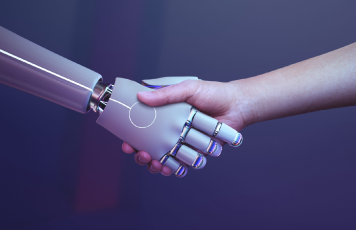In today's digital age, artificial intelligence (AI) has become an increasingly prominent topic in the technology landscape. From self-driving cars to virtual personal assistants, AI has infiltrated various aspects of our lives.
In this article, we will explore the concept of artificial intelligence, its benefits and advantages, as well as the concerns and challenges surrounding its implementation.
Artificial intelligence can be defined as the simulation of human intelligence in programmed machines to think and learn like humans. It involves the development of computer systems capable of performing tasks that typically require human intelligence, such as speech recognition, problem-solving, and decision-making.
The concept of artificial intelligence dates back to the 1950s when researchers began exploring the possibility of creating machines that could simulate human intelligence. Over the years, significant progress has been made, leading to the emergence of various branches of AI, including machine learning, natural language processing, and computer vision.
These branches have found applications in a wide range of fields, including healthcare, finance, and transportation.
One of the key benefits of artificial intelligence is the increased efficiency and productivity it brings to various industries. AI systems can perform tasks much faster than humans, leading to improved operational efficiency. For example, in healthcare, AI algorithms can analyze vast amounts of patient data to assist doctors in diagnosing diseases and creating treatment plans. This not only saves time but also enhances the accuracy and precision of medical diagnoses. Additionally, artificial intelligence enables the automation of repetitive tasks, freeing human workers to focus on more complex and creative endeavors.
For example, in manufacturing, robots equipped with AI capabilities can handle repetitive and physically demanding tasks, leading to increased productivity and reduced error rates. Furthermore, chatbots and virtual assistants powered by AI have revolutionized customer service by providing instant support and assistance, thereby enhancing customer satisfaction.
While the potential of artificial intelligence is immense, there are also concerns and challenges that need to be addressed.
One of the primary concerns is the ethical implications of AI. As AI systems become more complex, questions arise regarding privacy, data security, and the potential for misuse. For instance, facial recognition technology powered by AI can be used for surveillance purposes, raising concerns about privacy violations. Another significant concern is the impact of AI on employment. While AI has the ability to automate many tasks, it also raises fears of job displacement. As machines become capable of performing tasks traditionally done by humans, there is a risk of unemployment in certain job roles.
However, it is important to note that artificial intelligence also creates new employment opportunities, such as AI developers and data scientists. Additionally, issues of bias and fairness in AI algorithms have also come to the forefront. AI systems are trained on large datasets, which may inadvertently contain biases present in human-generated data. This can lead to discriminatory outcomes in areas such as employment, lending, and criminal justice. Efforts are being made to address these issues by ensuring diversity and inclusivity in the data used to train AI models.
In conclusion, artificial intelligence has brought about a revolution in various industries and has the potential to deliver significant benefits. However, it also comes with ethical concerns and challenges that must be carefully addressed as AI continues to advance.











